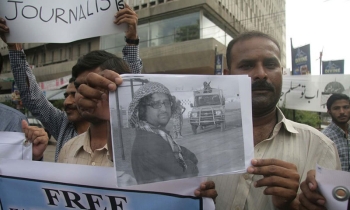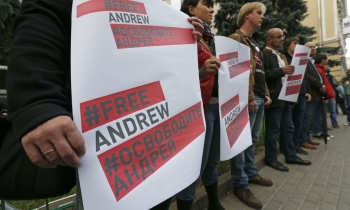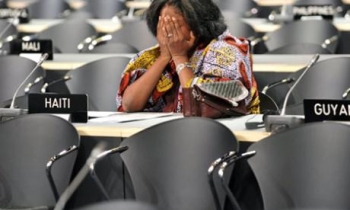The woman thrusting free newspapers into the hands of London commuters did not look as though she was on the frontline of a media revolution and a bitter battle between rival newspaper moguls. But yesterday's launch of London Lite, a new free evening paper for the capital, threatens to have repercussions across the country, where venerable evening titles are battling falling sales as younger readers turn to the internet and free papers.
From Monday, London Lite, published by the Evening Standard and Daily Mail owner Associated Newspapers, goes head to head with the London Paper, a free rival from Rupert Murdoch's News International, publisher of the Sun and the Times. Both will distribute 400,000 copies, compared with the Standard's daily paid-for sale of just over 300,000.
Behind this scramble for readers is a battle that might spell the end for the British tradition of paid-for evening papers, their appeal eroded by the 24-hour news culture and the internet.
The new model is based on Associated's profitable free morning title Metro, which has been a hit among younger readers wanting an unchallenging 20-minute read on the way to work and who use the internet during the day. It allows advertisers to reach the elusive 16-34 demographic that is no longer reading a daily or tuning in to mass market TV programmes.
The new 48-page title has a special ink that does not rub off on hands or clothing. Like Metro, it is light on politics and comment and heavy on gadgets, entertainment, gossip, listings and sport.
Din Manuelpillia, a 22-year-old trainee business adviser, is typical of the target audience of"young urbanites". He used to read the Times on his daily commute, he said, but found it too time consuming and gave it up for a free morning version of his local paper, the Brighton Argus. He reads the internet during the day.
Steve Auckland, head of Associated's free newspapers division, said these readers did not want "long, turgid articles". He said the "lively, breezy format" of his new paper would attract advertisers and young Londoners.
The high stakes battle has already led to the two sides trading verbal blows amid claims of industrial espionage. Ian Clark, general manager of News International's free newspapers division, promised his new paper would be "genuinely different" in look and tone, and described his rival's attempts to appeal to a young, internet-savvy audience as "a bit like watching your embarrassing uncle dancing at a wedding in his comedy socks".
London Lite will also compete with its paid-for sibling, which this week raised its cover price to 50p. Edward Bliss, a 55-year-old solicitor, said he would ditch the Standard for its free alternative: "I'll probably give it a try for a week. I'll stop buying the Standard, I think 20% is a swingeing rise."
The capital will now have four free titles a day from Monday, including business paper City AM, with the potential for yet another when London Transport auctions the right to distribute an afternoon title from its stations later this year.
Other cities, which already have their own versions of Metro, are sure to follow. Evening papers have tried various circulation-boosting tactics, including morning editions, while the Manchester Evening News, owned by Guardian Media Group, is now distributed free in the city centre but sold in the suburbs.
Paid-for evening papers will survive for those who still wanted in-depth news and comment, according to Mr Auckland, but he added that they would need "an appropriate cost base".









